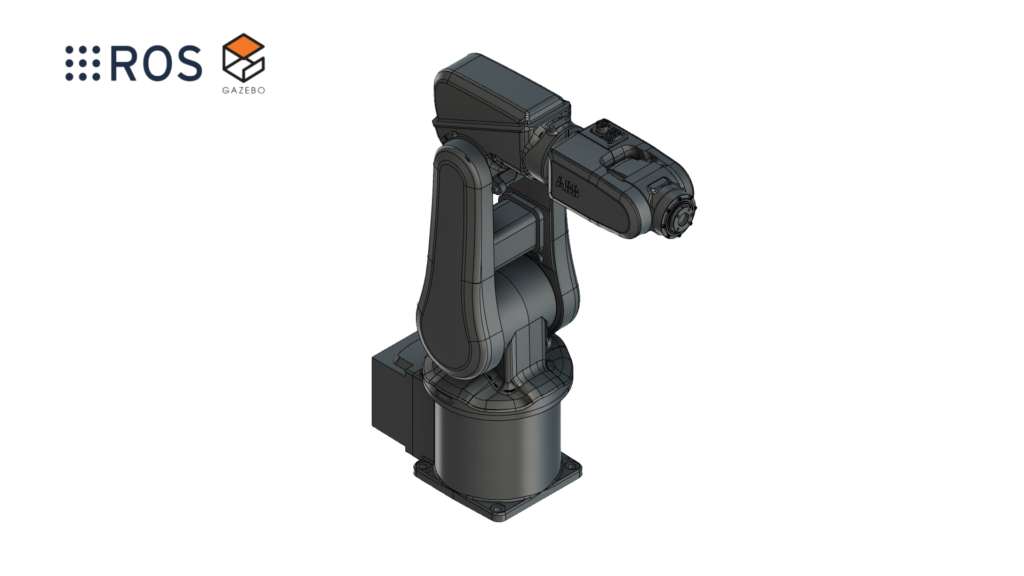En este artículo voy a ir recopilando código de uso frecuente para tenerlo a mano.
Espacios de trabajo
Crear un espacio de trabajo
source /opt/ros/galactic/setup.bash
mkdir -p ~/dev_ws/src
Resolver dependencias
rosdep install -i --from-path src --rosdistro galactic -y
Compilar todo el espacio de trabajo
colcon build
Paquetes
Crear un paquete
ros2 pkg create <package_name> --build-type ament_python --dependencies rclpyCrear un paquete con un ejecutable (nodo) vacío
ros2 pkg create <package_name> --node-name <node_name> --build-type ament_python --dependencies rclpy Compilar un paquete
colcon build --packages-select <package_name>ARCHIVOS LAUNCH
PYTHON
Estructura básica
Indicando directamente las acciones en el constructor del objeto LaunchDescription
from launch import LaunchDescription
def generate_launch_description():
return LaunchDescription([
# Incluir aquí las acciones:
# action_1,
# action_n,
])Acciones
GENERICAS
DeclareLaunchArgument
from launch.actions import DeclareLaunchArgument
DeclareLaunchArgument(
'argument_name',
default_value='A',
description='Description text for the argument',
choices=['A', 'B']
)IncludeLaunchDescription
from launch.actions import IncludeLaunchDescription
from launch_ros.substitutions import FindPackageShare
from launch.launch_description_sources import PythonLaunchDescriptionSource
IncludeLaunchDescription(
PythonLaunchDescriptionSource(
[
FindPackageShare('package_name'),
'/launch', '/my_file.launch.py'
],
launch_arguments = {'arg1_name': arg1_val, 'arg2_name': arg2_val}.items()
)
)
SetLaunchConfiguration
from launch.actions import SetLaunchConfiguration
SetLaunchConfiguration('arg_name', 'arg_value')
SetEnvironmentVariable
from launch.actions import SetEnvironmentVariable
SetEnvironmentVariable('VAR_NAME', 'var_value')
UnsetEnvironmentVariable
from launch.actions import UnsetEnvironmentVariable
UnsetEnvironmentVariable('VAR_NAME')
LogInfo
from launch.actions import LogInfo
LogInfo(msg='My text')
GroupAction
from launch.actions import GroupAction
GroupAction(
actions=[
# Incluir aquí las acciones:
# action_1,
# action_n,
]
)
ExecuteProcess
from launch.actions import ExecuteProcess
ExecuteProcess(
cmd=['my_cmd'],
name='my_process',
output='both', # Puede ser: screen, log, both.
additional_env={'env_var': 'env_var_value'},
)TimerAction
from launch.actions import TimerAction
TimerAction(period=5.0, actions=[action_1, action_n])RegisterEventHandler
from launch.actions import RegisterEventHandler
from launch.event_handlers import <event_handler>
RegisterEventHandler(
event_handler=<event_handler>( <args> )
)ESPECIFICAS DE ROS
Node
from launch_ros.actions import Node
Node(
package='package_name',
executable='executable_name',
name='node_name',
exec_name='process_name',
output='screen',
namespace='my_namespace',
remappings=[("src_topic1", "dest_topic1"), ("src_topic2", "dest_topic2")],
arguments=['-arg1_name', 'arg1_value', '-arg2_name', 'arg2_value'],
parameter=[{'param1': 'param1_value', 'param2': 'param2_value'}],
ros_arguments=['__ros_arg_name', 'value'],
)RosTimer
from launch_ros.actions import RosTimer
RosTimer(period=5.0, actions=[action1, action2])SetParameter
from launch_ros.actions import SetParameter
SetParameter(name='param_name', value='param_value')SetParameterFromFile
from launch_ros.actions import SetParameterFromFile
SetParametersFromFile('path/to/file.yaml')SetRemap
from launch_ros.actions import SetRemap
SetRemap(src='src_topic', dst='dst_topic')SetUseSimTime
from launch_ros.actions import SetUseSimTime
SetUseSimTime(True)PushRosNamespace
from launch_ros.actions import PushRosNamespace
PushRosNamespace('my_namespace')Sustituciones
Condiciones
IfCondition
# La acción se ejecutara si el argumento my_arg = 'true'.
condition=IfCondition(LaunchConfiguration('my_arg'))
# La acción se ejecutara si la variable de entorno USER = 'Alex'.
condition=IfCondition(PythonExpression(["'", EnvironmentVariable('USER'), "' == 'Alex'"]))UnlessCondition
from launch.conditions import IfCondition
# La acción se ejecutara si el argumento my_arg = 'false'.
condition=UnlessCondition(LaunchConfiguration('my_arg'))
# La acción se ejecutara si la variable de entorno USER != 'Alex'.
condition=UnlessCondition(PythonExpression(["'", EnvironmentVariable('USER'), "' == 'Alex'"]))LaunchConfigurationEquals
from launch.conditions import UnlessCondition
# La acción se ejecutara si el argumento user = 'Alex'.
condition=LaunchConfigurationEquals('user', 'Alex')
# La acción se ejecutara si el valor del argumentos user y my_name coinciden.
condition=LaunchConfigurationEquals('user', LaunchConfiguration('my_name'))Eventos
XML
YAML
TF2
Transformaciones estáticas
Publicar una transformación estática
from geometry_msgs.msg import TransformStamped
from tf2_ros.static_transform_broadcaster import StaticTransformBroadcaster
self.static_tf_broadcaster = StaticTransformBroadcaster(self)
tf = TransformStamped()
tf.header.stamp = self.get_clock().now().to_msg()
tf.header.frame_id = 'parent_frame'
tf.child_frame_id = 'child_frame'
tf.transform.translation.x = <translation_x_value>
tf.transform.translation.y = <translation_y_value>
tf.transform.translation.z = <translation_z_value>
tf.transform.rotation.x = <quaternion_x_value>
tf.transform.rotation.y = <quaternion_y_value>
tf.transform.rotation.z = <quaternion_z_value>
tf.transform.rotation.w = <quaternion_w_value>
self.static_tf_broadcaster.sendTransform(tf)Convertir de ángulos de Euler a cuaternion
from tf_transformations import quaternion_from_euler
quat = quaternion_from_euler(roll, pitch, yaw)Convertir de cuaternion a ángulos de Euler
from tf_transformations import euler_from_quaternion
euler = euler_from_quaternion(x, y, z, w)Robot State Publisher
robot_state_publisher_node = Node(
package='robot_state_publisher',
executable='robot_state_publisher',
name='my_robot_state_publisher',
emulate_tty=True,
parameters=[{'use_sim_time': True, 'robot_description': xml}],
remappings=[("/robot_description", "/my_robot_description")
],
output="screen"
)
Post Views: 89



